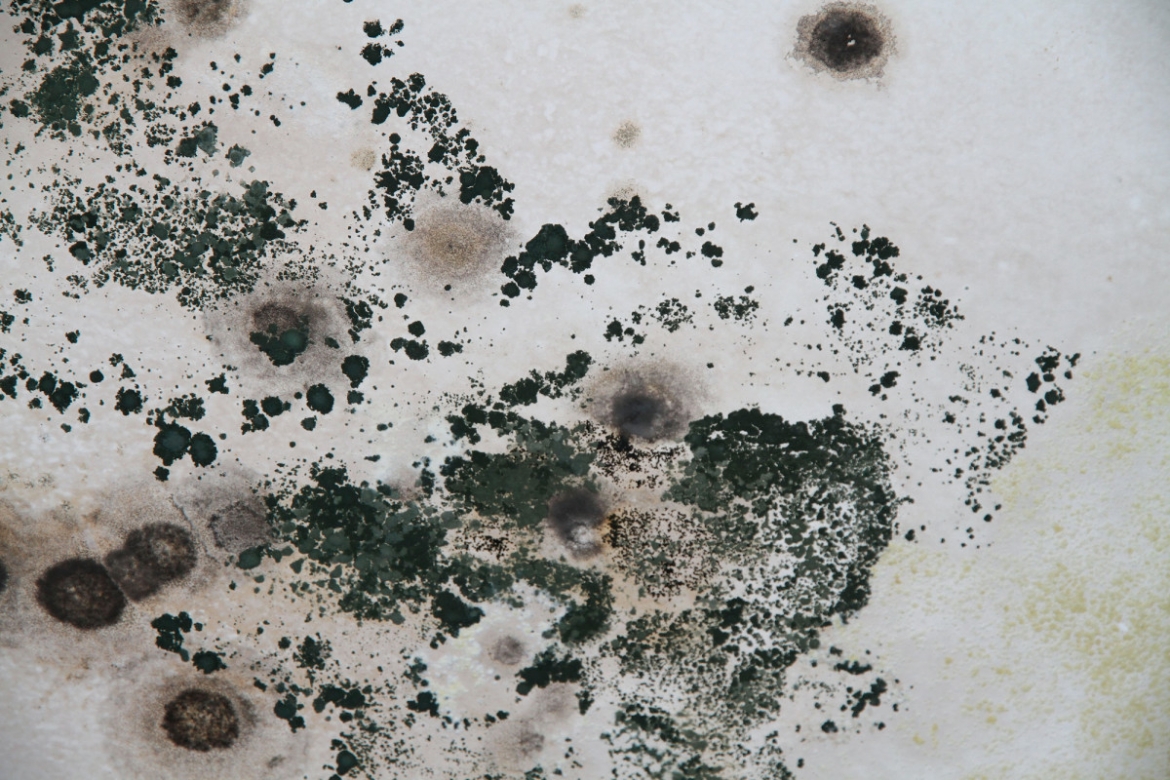Can Mold Exposure Affect Thyroid Health?
It is highly unlikely that you will not face mold inside your home at least once in your lifetime.
But the smell of mold is not the only thing to worry about.
Many people have come forward pointing out that their experience with mold exposure has caused them great pain and worries, thinking about all of the health issues that can happen because of it.
Today we are here to discuss mold exposure and its ability to affect our thyroid health.
What exactly is mold?
Mold is a type of fungus that we are all familiar with - some better than.
Mold can present itself everywhere. From our toilets and bedrooms to the basement and even the air around us. All that it needs to thrive is a warm and moist environment. It can grow on almost everything, such as wood, dirt, and paper.
One specific type of mold is more common than others – the so-called black mold often referred to as toxic mold. While there is not exactly a lot of scientific research to go on to, there have been a number of cases that have shown how mold, especially black mold, has affected certain individuals in a negative matter over the years.
Health concerns linked to mold exposure
In order for the mold to spread, mold spores are continuously growing. These spores later produce toxins, called mycotoxins. It is the black mold that is especially considered to be toxigenic, producing mycotoxins, which are toxic substances.[i]
These mycotoxins, when produced in small amounts, do not usually present with any health concerns in healthy individuals, that is. However, when an individual is struggling with a certain autoimmune condition that affects his/her immune system, or any health issue really that has affected the immune system, is exposed to mold, he/she can experience health issues linked to mold exposure.
It is the individuals that are struggling with known and unknown allergies and asthma that are especially threatened due to the surrounding mold exposure. Mold exposure, in this case, can be even fatal.
High concentrations of mold exposure can be fatal for even the healthiest individuals there. Of course, many factors are to be considered as a part of the process, such as the individual’s health status, medical history, amount of time being exposed to mold, the concentration of mycotoxins, etc.
Research has shown that infants and small children that have been exposed to mold at home have an increased risk of developing asthma by the age of seven.[ii] Mold exposure seems to worsen allergy symptoms among individuals with a known or unknown allergy.
The symptoms of mold poisoning
Mold poisoning, also known as mycotoxicosis, often affects the upper respiratory system, causing symptoms that mimic those of the common cold or the flu. In the following, we will list the most common symptoms caused by mold poisoning.
- Coughing;
- Wheezing;
- Stuffy or runny nose;
- Itchy and/or red eyes;
- Itchy skin;
- Headache;
- Fatigue;
- Fever;
- Difficulty breathing.
Long-term mold exposure can cause even more severe symptoms such as memory loss, confusion, abdominal pain, hair loss, unexplained weight gain, muscle cramps, and anxiety, among others.
Not only is mold exposure potentially fatal for individuals with a weakened immune system, but they may experience a worsening of their already existing symptoms due to this very same exposure. In this case, proper treatment and mold removal have to be implemented as soon as possible.
Mold poisoning is usually diagnosed by performing a physical exam, a blood test, and a skin prick test. Often, assessment of mold levels is also required in order to determine and specifically diagnose mold-related illnesses.
The common thyroid issues
There are a lot of things that can go wrong with something as significant as our thyroid gland. Not surprisingly, a variety of symptoms occurs, and the individual struggles with a series of mild to more severe symptoms. In the following, we will explore the basics of two common thyroid issues – Hashimoto’s thyroiditis and Graves’ disease.
Hashimoto’s thyroiditis is an autoimmune disease that often leads to a co-related thyroid issue called hypothyroidism. Unfortunately, the exact cause of Hashimoto’s thyroiditis is unknown, but there are certain risk factors that have been revealed over the years. Hashimoto’s thyroiditis causes symptoms such as fatigue, puffiness of the face, weight gain, constipation, infertility issues, depression, joint and muscle pain, etc. Often, years go by before a single symptom occurs.
Graves’ disease is yet another autoimmune disease that affects the thyroid gland. Opposite to Hashimoto’s thyroiditis, Graves’ disease causes hyperthyroidism. In this case, symptoms such as muscle weakness, heat intolerance, goiter, diarrhea, unexplained weight loss, and nervousness, among others, occur. As with Hashimoto’s thyroiditis, there is no explanation as to why Graves’ disease occurs.
How does mold exposure affect your thyroid health?
For many years now, people have been wondering if mold can be the cause of their poor thyroid health. Can we list mold as yet another thing that threatens to worsen our thyroid health and make diseases such as Hashimoto’s thyroiditis and Graves’ disease a reality for us?
Let’s see what science has to tell us about this.
In order to talk about the potential link between mold and poor thyroid health, we need to discuss something called Human Leukocyte Antigen or HLA. HLA plays a certain role in the so-called antigen presentation. What we do know about HLA so far is that having certain HLA markers makes you more susceptible to certain health issues, as compared to the individuals that do not carry around these HLA markers within them. Common examples of these health issues linked to the presence of HLA markers are Hashimoto’s thyroiditis and Graves’ disease. When exposed to certain triggers, your risk of Hashimoto’s thyroiditis or Graves’ disease is increased. The same goes for mold exposure.
Those individuals who have genetic HLA markers that make them more susceptible to the mycotoxins produced by mold are more likely to struggle with the symptoms that we mentioned earlier when exposed to mold, especially in case of long-term exposure. This is because the presence of these specific HLA markers prevents them from being able to get rid of the mycotoxins on their own.
Because of the presence of these HLA markers, the body will be unable to mount a proper immune response while being exposed to mycotoxins. As a result, a chronic inflammatory response will occur.
Now, the reason that we are explaining all of this is that we are trying to explain how mold exposure can be linked to thyroid issues, especially Hashimoto’s thyroiditis and Graves’ disease. There are a few mechanisms that take place once a mold exposure happens.
For example, leptin, which is a very important hormone that regulates fat storage and hunger, is elevated in those who are struggling with a chronic inflammatory response such as the one caused by long-term mold exposure. This leads to leptin resistance, which on the other hand, leads to the unexplained weight gain that we mentioned earlier as one of the symptoms of mold poisoning.[iii]
Elevated leptin levels point out to a blocked leptin receptor, which will interfere with the production of another hormone called melanocyte-stimulating hormone (MSH). Low MSH levels often lead to a widening of the junctions of the small intestine, thus causing leaky gut. Leaky gut is commonly linked to various autoimmune conditions, including Hashimoto’s thyroiditis and Graves’ disease.[iv] This is one mechanism through which mold poisoning can lead to thyroid issues.
Yet another mechanism through which mold poisoning is being linked to the common thyroid issues is through the transforming growth factor (TGF) Beta-1. The TGF Beta-1 is associated with a decreased functioning of the regulatory T cells, while at the same time being closely linked to suppressing autoimmunity.
However, an increase in TGF Beta-1 levels will cause the regulatory T cells levels to decline, thus making the individual more susceptible to developing an autoimmune condition such as Hashimoto’s thyroiditis and Graves’ disease. The TGF Beta-1 levels will be increased in the case of chronic inflammatory conditions such as the one due to mold exposure.
So there you have it – these are the two mechanisms through which long-term mold exposure makes it possible for your thyroid health to decline, causing one of the two most common thyroid issues – Hashimoto’s thyroiditis or Graves’ disease. The risk is especially high in those who are struggling with an already present autoimmune condition before the mold exposure takes place.
How is mold poisoning treated?
The symptoms of mold poisoning will go away as soon as you get rid of any mold from your surroundings. While you do that, there are options that can be explored to help you reduce any present symptoms. It is very important to start treatment early in order to prevent this from progressing into a more serious health issue such as Hashimoto’s thyroiditis and Graves’ disease.
You can try using nasal sprays to lower the present airway inflammation. There are over-the-counter nasal sprays that can be used, while also a simple solution out of warm, distilled water can be used as well. Antihistamines are often used in addition to using decongestants to calm any inflammation and swelling down. Allergy shots are sometimes also used.
If you notice any of the common symptoms of Hashimoto’s thyroiditis or Graves’ disease, such as constipation, drowsiness, weight gain, fatigue, dry skin, and muscle soreness, contact your doctor immediately. Make sure that you receive proper treatment for your symptoms and protect yourself and your home against mold.
How to protect yourself and your home against mold?
One of the best ways to protect yourself and your house against mold and all of the worrying signs and symptoms that come with it is quite simple. All that you have to do is regularly check for molds, especially in your basement and bathroom. Do take good care of your surroundings and make sure that you clean everything nice and good at least once a week.
Invest in a quality air-purifier, especially one that has a high-efficiency particulate air (HEPA) filters. Do not ignore any pipe leaks and get them fixes as soon as possible. Make sure that you leave the doors and windows open while you take a long bath or shower to prevent moisture gather-up. And if you do find mold, make sure that you properly remove it. If you are unsure how to do that, contact a professional that can efficiently remove any mold from your house.
Conclusion
Unfortunately, mold can cause a lot more trouble than some awful smell that is surrounding you. There are many health issues that happen because of this.
While it may cause your allergy to worsen, it can secretly cause an autoimmune condition to occur as well.
Make sure that your home is mold-free and do alert your doctor about any existing symptoms of mold poisoning and/or thyroid issues.
References
[i] Borchers, A. T., Chang, C., & Gershwin, M. E. (2017). Mold and Human Health: a Reality Check. Clinical Reviews in Allergy & Immunology, 52(3), 305–322. doi: 10.1007/s12016-017-8601-z
Retrieved from https://www.ncbi.nlm.nih.gov/pubmed/28299723
[ii] Reponen, T., Lockey, J., Bernstein, D. I., Vesper, S. J., Levin, L., Hershey, G. K. K., … Lemasters, G. (2012). Infant origins of childhood asthma associated with specific molds. Journal of Allergy and Clinical Immunology, 130(3). doi: 10.1016/j.jaci.2012.05.030
Retrieved from https://www.ncbi.nlm.nih.gov/pmc/articles/PMC3432137/
[iii] Hasenkrug, K. J. (2007). The Leptin Connection: Regulatory T Cells and Autoimmunity. Immunity, 26(2), 143–145. doi: 10.1016/j.immuni.2007.02.002
Retrieved from https://www.ncbi.nlm.nih.gov/pubmed/17307702
[iv] Ebert, E. C. (2010). The Thyroid and the Gut. Journal of Clinical Gastroenterology, 1. doi: 10.1097/mcg.0b013e3181d6bc3e
Retrieved from https://www.ncbi.nlm.nih.gov/pubmed/20351569













































































Leave a comment